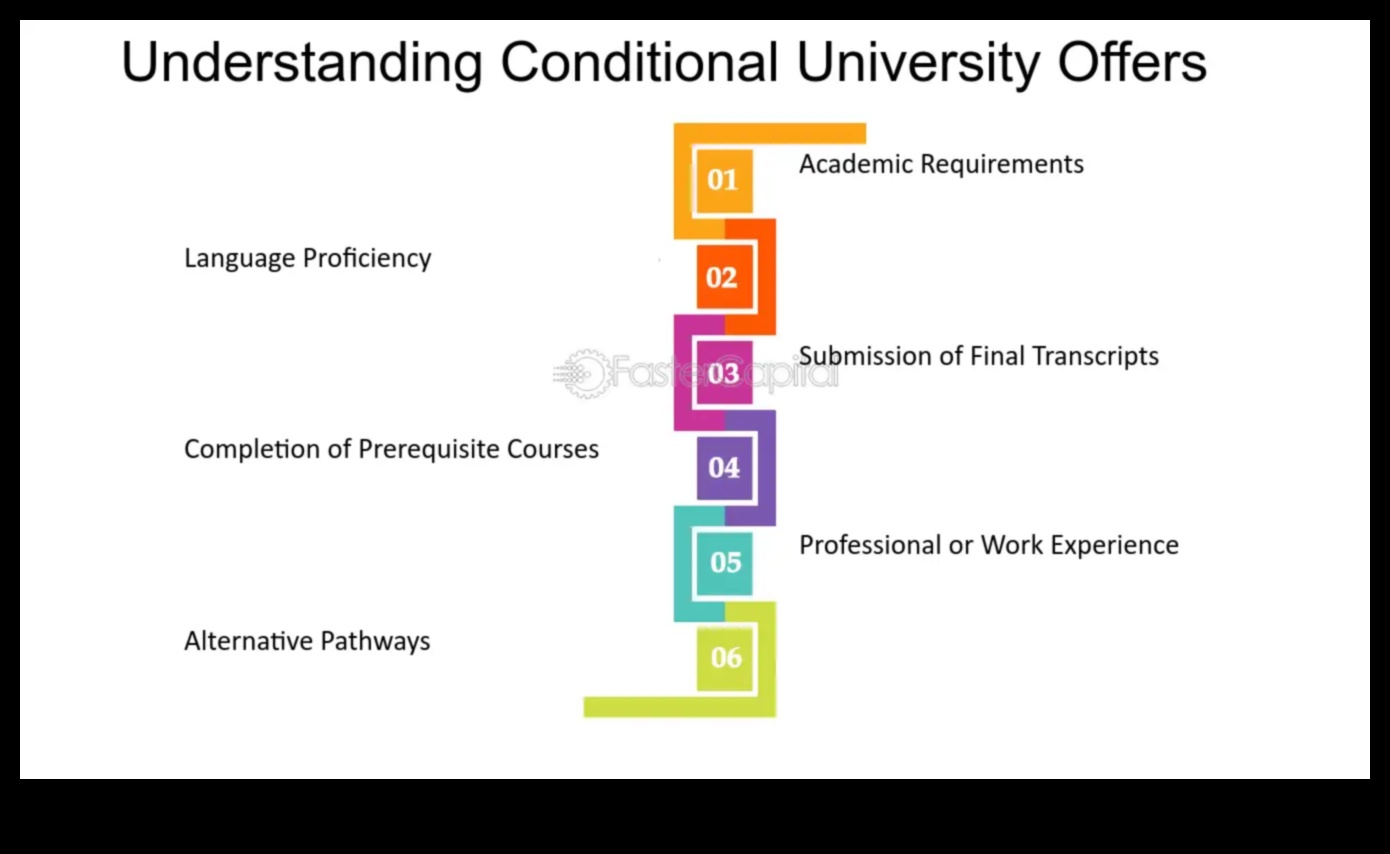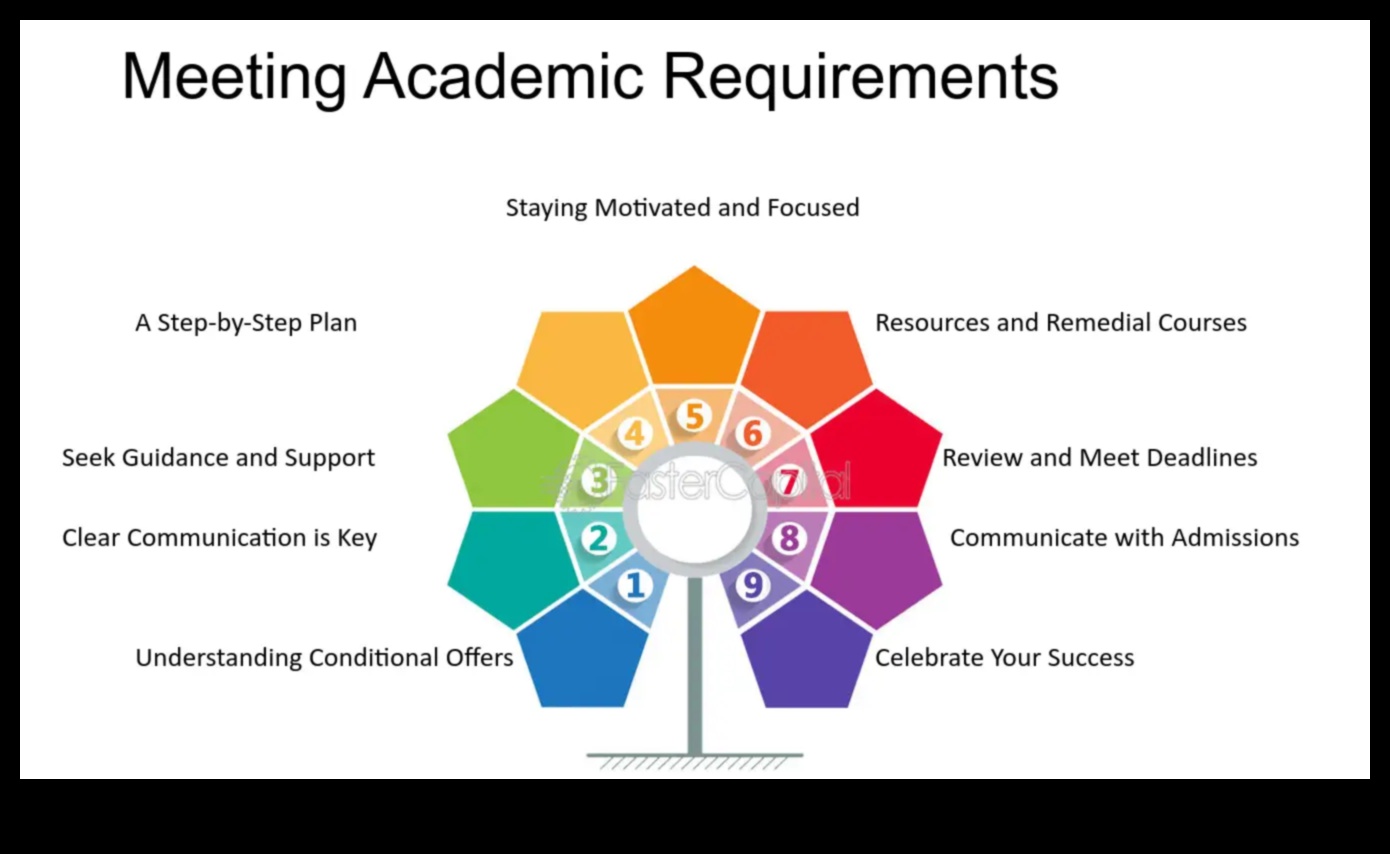
What is Conditional Admission?
Conditional admission is a type of admission that is offered to students who meet the minimum requirements for admission but do not have all of the required qualifications. For example, a school may offer conditional admission to a student who has a high GPA but does not have the required SAT or ACT scores. In order to maintain their conditional admission, the student must meet certain requirements, such as taking the required standardized tests and achieving a certain GPA in their first year of college.
Conditional admission can be a good option for students who are not sure if they will meet all of the requirements for regular admission. It can also be a way for students to improve their chances of getting into a more selective school. However, it is important to be aware of the risks associated with conditional admission, such as the possibility of losing your admission if you do not meet the conditions.
If you are considering applying for conditional admission, it is important to carefully read the terms and conditions of the offer. Make sure you understand what you need to do to maintain your admission and what will happen if you do not meet the conditions.
| Feature | Conditional Admission | Early Decision | Early Action | Deferred Admission | Waitlist |
|---|---|---|---|---|---|
| Commitment | Uncommitted | Commitment | Uncommitted | Uncommitted | Uncommitted |
| Decision Date | Rolling | Early | Early | Regular | Regular |
| Academics | Minimum requirements | High standards | High standards | Minimum requirements | Minimum requirements |
| Financial Aid | Considered | Considered | Considered | Considered | Considered |
| Risk | High | Medium | Medium | Medium | High |

I. What is conditional admission?
Conditional admission is a type of admission that is offered to students who meet the minimum requirements for admission but do not have all of the required qualifications. For example, a school may offer conditional admission to a student who has a high GPA but does not have the required SAT or ACT scores. In order to maintain their conditional admission, the student must meet certain requirements, such as taking the required standardized tests and achieving a certain GPA in their first year of college.
II. What are the benefits of conditional admission?
There are a number of benefits to conditional admission, including:
* It can give you a chance to prove yourself to a school that you’re interested in.
* It can help you to get into a school that you might not have been admitted to otherwise.
* It can give you more time to improve your academic record and your standardized test scores.
* It can help you to get financial aid from a school that you might not have been eligible for otherwise.
However, it’s important to remember that conditional admission is not a guarantee of admission. You still need to meet all of the conditions of your offer, or you could lose your spot in the class.
If you’re considering applying for conditional admission, be sure to weigh the benefits and risks carefully before making a decision.

What is conditional admission?
Conditional admission is a type of admission that is offered to students who meet the minimum requirements for admission but do not have all of the required qualifications. For example, a school may offer conditional admission to a student who has a high GPA but does not have the required SAT or ACT scores. In order to maintain their conditional admission, the student must meet certain requirements, such as taking the required standardized tests and achieving a certain GPA in their first year of college.

V. What happens if I don’t meet the conditions of my conditional admission?
If you don’t meet the conditions of your conditional admission, your offer of admission may be rescinded. This means that you will not be able to attend the school.
The specific conditions of your conditional admission will vary depending on the school. However, some common conditions include maintaining a certain GPA, taking the required standardized tests, and submitting an essay or other application materials.
If you are concerned about meeting the conditions of your conditional admission, you should speak to your admissions counselor. They can provide you with more information about the specific requirements and offer advice on how to stay on track.
What is conditional admission?
Conditional admission is a type of admission that is offered to students who meet the minimum requirements for admission but do not have all of the required qualifications. For example, a school may offer conditional admission to a student who has a high GPA but does not have the required SAT or ACT scores. In order to maintain their conditional admission, the student must meet certain requirements, such as taking the required standardized tests and achieving a certain GPA in their first year of college.
VII. What are the alternatives to conditional admission?
There are a few alternatives to conditional admission that you may want to consider if you are not eligible for or do not want to accept a conditional admission offer. These alternatives include:
- Early decision
- Early action
- Deferred admission
- Waitlist
Each of these alternatives has its own advantages and disadvantages, so it is important to weigh them carefully before making a decision.
For more information on these alternatives, please see the following articles:
How can I improve my chances of getting a conditional admission?
There are a few things you can do to improve your chances of getting a conditional admission to a college or university.
Maintain a high GPA. This is the most important factor in getting a conditional admission, as colleges and universities want to be sure that you are capable of succeeding academically.
Take the required standardized tests and score well. If a college or university requires you to take the SAT or ACT, make sure you study hard and do your best to score well.
Write a strong personal statement. Your personal statement is your chance to show colleges and universities who you are and why you would be a good fit for their school. Take your time writing your personal statement and make sure it is well-written and error-free.
Get good letters of recommendation. Ask teachers, coaches, or other mentors who know you well to write letters of recommendation for you. These letters should highlight your strengths and why you would be a good addition to the college or university.
Demonstrate your interest in the school. Show colleges and universities that you are genuinely interested in their school by doing your research, visiting the campus, and staying in touch with admissions officers.
By following these tips, you can improve your chances of getting a conditional admission to the college or university of your choice.
When applying for conditional admission, it is important to avoid making common mistakes that can jeopardize your chances of being accepted. Here are some tips to help you avoid these mistakes:
- Don’t wait until the last minute to apply.
- Make sure your application is complete and accurate.
- Be honest about your qualifications and chances of success.
- Don’t make any promises that you can’t keep.
- Be prepared to meet the conditions of your conditional admission.
By avoiding these common mistakes, you can increase your chances of being accepted to a school with conditional admission.
FAQ
Q: What is conditional admission?
A: Conditional admission is a type of admission that is offered to students who meet the minimum requirements for admission but do not have all of the required qualifications. For example, a school may offer conditional admission to a student who has a high GPA but does not have the required SAT or ACT scores. In order to maintain their conditional admission, the student must meet certain requirements, such as taking the required standardized tests and achieving a certain GPA in their first year of college.
Q: What are the benefits of conditional admission?
A: There are several benefits to conditional admission, including:
- It gives students a chance to prove that they can meet the requirements of the school.
- It can help students to get into a school that they would not have been able to get into otherwise.
- It can give students more time to prepare for college.
Q: What are the risks of conditional admission?
A: There are also some risks associated with conditional admission, including:
- Students may not be able to meet the conditions of their admission.
- Students may be disappointed if they do not get into the school after all.
- Students may have to take extra classes or tests in order to meet the conditions of their admission.